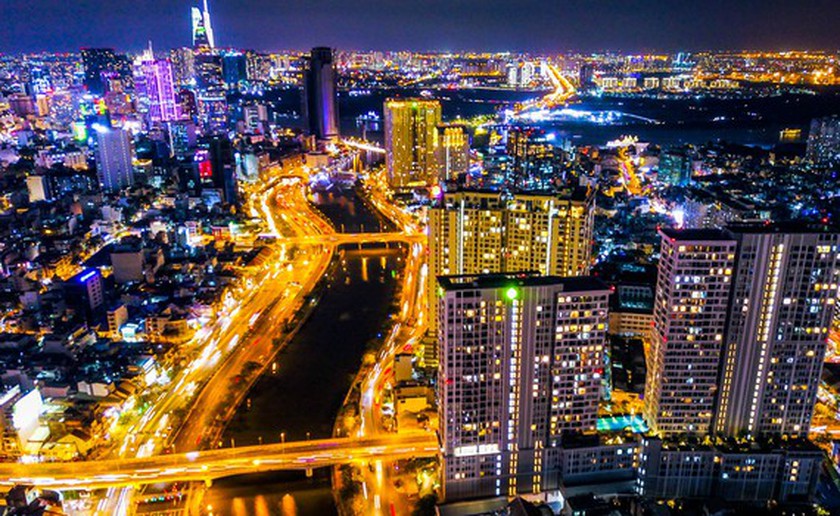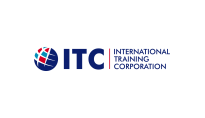

Simultaneously, the Ministry of Finance has also prepared a report on the State Budget estimate for 2022, and will submit it to the Government at the second session of the 15th National Assembly. Dr. TRAN DU LICH, an economic expert, discussed many points with Saigon Investment regarding these programs.

Dr. TRAN DU LICH: - In the current situation, we need a strong support package from the State to help businesses and people facing difficulties due to the Covid-19 pandemic. Therefore, a program for economic recovery and development after the Covid-19 pandemic, of about VND800,000 bn, or nearly 10% of GDP, proposed by the Ministry of Planning and Investment, is vital and necessary. Countries affected by the pandemic and less vulnerable than Vietnam still provide support packages on this scale or more, to achieve their economic recovery goal.
We also urgently need such a package to handle issues such as social security, interest rate compensation, reduction of taxes and fees, including VAT, and for other programs such as financial assistance, restructuring, and packages related to housing support for workers. This package will last from 2022 till 2023. An important part of the package will come from exemption and tax reduction, same as in 2021.
On this occasion, we use the budget tool to not only support normal restructuring after the pandemic but also set restructuring target associated with improving the quality of the economy. At the same time, we need to overcome the shortcomings of infrastructure, promote the national digital transformation program, help businesses innovate technology, and reorganize the market structure.
From here on we need to realize the goal of improving the economy, such as on how to calculate, how to find sources to set goals, and balance sources, including budget over spending and borrowing. Regarding resources, the Ministry of Planning and Investment is also calculating mobilizing from many sources, including budget overspending and foreign loans.
However, according to the 2022 State Budget estimate, over spending is expected to be at 4% of GDP, or about VND373,000 bn. Why is the over spending rate still only at 4% in these difficult times? The reason is that when calculating the budget deficit, one of the factors that have long been considered is the ceiling of public debt relative to the Gross Domestic Product (GDP). Previously, with the old GDP calculation method, the public debt ceiling was 65%. Later, the new GDP calculation method brought the public debt ceiling down to 60%. Thus, compared to this ceiling, the public debt ratio in 2022 is quite low.
It is known that public debt is the Government's annual direct debt repayment obligation compared to the total State Budget revenue, which is a very important factor to be calculated, to avoid risk of default. The debt repayment obligation has approached nearly 25% of the total budget revenue, which is an alarming level. This is a point that is always considered, so that there is no huge over spending, but problems arise and under normal conditions we have over spent by 4%. In 2022, it is necessary for us to implement the program of economic recovery and development after the pandemic, and this ceiling of over spending cannot meet the requirements set forth.
Therefore, in 2022 and 2023, it is necessary to have an over spending level higher than the threshold of 4% of GDP to have a source to implement support packages. If we stand on the above budget estimate, it will not be associated with the economic recovery program that the Government will submit to the National Assembly.
JOURNALIST: - Sir, for Ho Chi Minh City, the Ministry of Finance proposes to submit to the National Assembly a report considering raising the local budget in 2022 to 21%, instead of 18% as in the last five years. What do you think about this proposal?
- Raising the budget for Ho Chi Minh City is reasonable and has also been concluded by the Central Government. For a long time, Ho Chi Minh City proposed to increase the budget to 23% from 18%, while the Ministry of Finance suggested 21%. However, it must be seen that if 23% is set, in 2022 Ho Chi Minh City budget will be increased by about VND9,000 bn. If 21% is regulated, it will only increase by about VND6,000 bn. Either way, it is not enough for the City in terms of investment needs, especially for the coming years of 2022 and 2023.
Therefore, Ho Chi Minh City is required to have its own support package in addition to the general program of the Government. As Ho Chi Minh City has been the hardest hit by the Covid-19 pandemic, the period of social distancing has been the strictest and longest, so it is necessary to take the strongest measures to recover the economy soon. If necessary, the Government should allow Ho Chi Minh City to over spend the local budget and issue more bonds. The City itself must also mobilize existing resources, such as promoting equitization, and auctioning land funds, in order to boost up the economy faster.
- Sir, what is your opinion on the space of monetary policy in the next few years to support the economy, when the bad debt rate increases sharply and commercial banks are under a lot of pressure on capital adequacy?
- In the current situation, the bad debt on the balance sheet of commercial banks will definitely increase. This is not calculating and assessing that all bad debts are arising after the pandemic from frozen and extended debts in the context of many businesses failing. There is huge pressure on credit policy in 2022. At the same time, the National Assembly Resolution has forced the State Bank of Vietnam to control inflation at 4%. Thus, the potential for monetary policy in 2022 is not large, because inflation must be controlled and provision for bad debts increase.
In addition, banks must implement capital adequacy standards in accordance with international practices, apply Basel II and aim for Basel III. In recent years, the commercial banks have operated relatively well and there are also many very good banks. To keep results in the current situation, it is not possible to expect much from monetary policy. Therefore, the problem posed in 2022 is the best and most rhythmic coordination between monetary policy and fiscal. For example, credit from monetary policy to support businesses must be associated with public investment and State prime capital, to attract social investment.
In particular, the best public investment should be distributed to dynamic economic zones, with priority given to places where the State money is spent to attract good private investment. For example, in Ho Chi Minh City, VND1 of public investment attracts VND 8 to VND 10 of private investment. Other areas with such good conditions should also focus on stimulating the economy's aggregate demand.
- Sir, for the above support, what will be the appropriate implementation mechanism?
- After the Covid-19 pandemic began to spread, there have been three groups of enterprises. The first group includes businesses forced to stop operating due to the Government's strict regulations to fight the pandemic. Now as businesses have begun to reopen, they are more self-sufficient and in good health. The number of these businesses is not small, including enterprises in industrial zones. For this group, the most important support is to remove all institutional and procedural bottlenecks to help them develop faster. Currently, this is the leading group that will help in accelerating economic recovery.
The second group comprises of enterprises that are facing difficulties for capital but have the standards and conditions to continue borrowing, and they can participate in credit support packages of the State. This number needs cash flow as well as a credit support package. The third group are enterprises in several difficulties, with no money and piled up debt, and who cannot borrow, and need to implement the model of connecting banks with enterprises.
Returning to the post-pandemic economic development and recovery program, the support package of VND800,000 bn has many parts and some of these do not create new cash flow, such as tax exemption and reduction, while some others have new cash flow. When allocating new cash flow to support businesses, many issues need to be focused on. For example, when implementing the interest rate compensation mechanism, it is necessary to avoid repeating the situation as in the previous ten years, that of mere surface support.
Accordingly, it is necessary to determine which enterprises need to be provided with compensation, and support for interest rate compensation, and which must be associated with restructuring, digital transformation, and technological innovation. The government makes general regulations, thereby decentralizing the local authorities to take the initiative. To support businesses, there must be a strong role of associations and industries. I want to emphasize that support must be targeted, not superficial, otherwise it will distort the market.
- Thank you very much.
.YEN LAM ( Interviewer )

Điện thoại: 0909.140.866
Email: info@irrmanagement.com.vn







